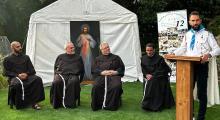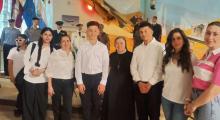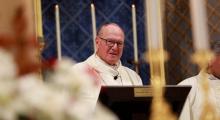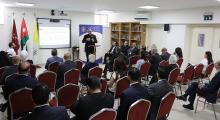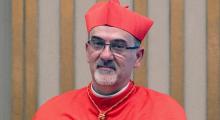Issued by the Catholic Center for Studies and Media - Jordan. Editor-in-chief Fr. Rif'at Bader - موقع أبونا abouna.org
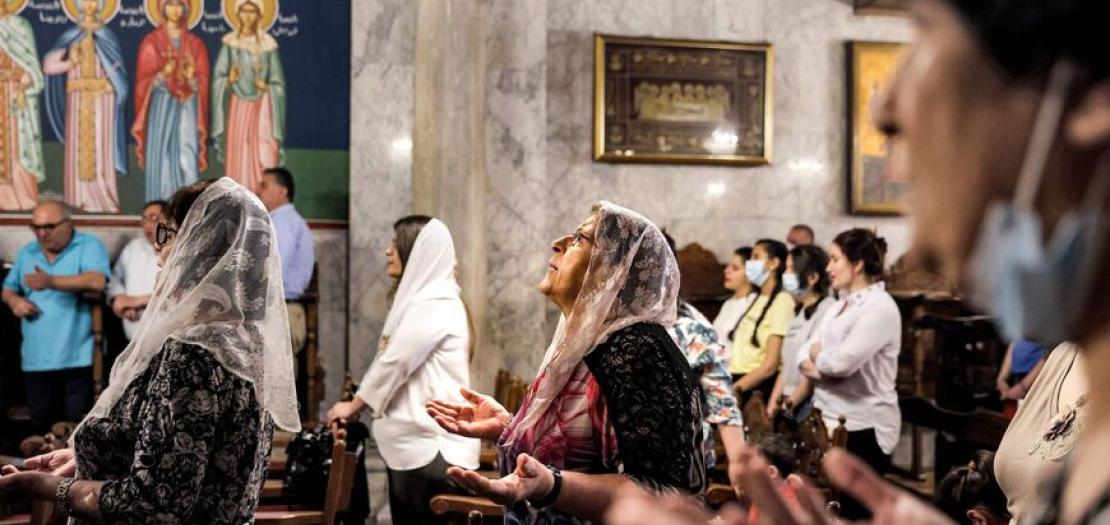
“Something is moving” in the quagmire of international diplomacy. Hitherto, war proclamation and the sound of weapons prevailed, with their tragic tally of death and destruction. Yet, there is hope that a truce can "become effective" with "real humanitarian aid for the entire population, especially in the north, which is the most abandoned,” said Fr Gabriel Romanelli, pastor at Gaza’s Holy Family Church.
Since the war broke out, the Argentinian priest has been stranded first in Bethlehem, and currently in Jerusalem, unable to return home due to Israel’s border closures.
He looks with cautious hope at the vote at the United Nations, a first step to stem the escalating conflict resulting from the Hamas terrorist attack on October 7 in southern Israel, which prompted a devastating military campaign by the Jewish state with its burden of death and destruction.
“By now, even superlatives are no longer enough to describe the tragic nature of the situation, the number of deaths that continues to rise, the number of the wounded that is growing, as well as the many who are dying of hunger, especially children,” the priest of the Incarnate Word told AsiaNews.
“The sick end up succumbing for the lack of care, not to mention the more than 70,000 wounded in the war, and those who suffer from ordinary diseases that could be treated with drugs, like diabetes."
This is why, in his view, the UN decision "is good," but it must be accompanied by two other "fundamental steps: allowing humanitarian aid in the form of food and medicine to enter the north and, at the same time, stopping the invasion of the south, also because both would help in the negotiations for the release" of those Israelis and foreigners who are still in the hands of Hamas.
No Easter
Meanwhile, thousands of Christians from the West Bank have been reportedly banned from Jerusalem, from participating in Holy Week services, starting with Palm Sunday Mass last Sunday.
For days, Israeli soldiers and security forces have been patrolling the streets and guarding checkpoints around the holy city, denying access to people who wanted to take part in the most important feast in the liturgical calendar.
This is a further blow to the survival of a community already burdened by the lack of pilgrims. In addition to strengthening the sense of isolation, this has brought the economy to its knees. Tens of thousands of Palestinian Christian families live thanks to earnings from religious tourism and have not seen any income for months.
Only a small group of foreign Christians arrived in Jerusalem over the weekend to experience Holy Week, starting with the traditional Palm Sunday Mass led by the Latin Patriarch of Jerusalem, His Beatitude Cardinal Pierbattista Pizzaballa.
“The celebrations of these days contain a mixture of bitterness and joy,” said Fr. Romanelli. “The celebration of Palm Sunday in the Middle East is very well attended, especially by Christian children who consider it as their feast, but the rituals have been reduced to the bare essential, to the liturgical part, like Muslims for Ramadan.”
People, whether Christian or Muslim, do not want to neglect “the religious part; faith is an essential component in the Middle East and this is even truer in Holy Week.”
“Since yesterday there have been Jeremiah's lamentations, the Liturgy of Darkness, Mass, and vespers, but, in the background, an atmosphere of deep sadness remains because there is no end in sight, no end in sight,” lamented Fr Romanelli.
“In the past, it was different, one could figure out how long a conflict could last, even if it lasted several weeks, while this time no one sees an end,” he added.
The absence of West Bank Christians could be related to the "extremely late" and “one day" permit granted by the Israeli authorities, which made it impossible to travel to Jerusalem.
Speaking directly to Gaza Christians, most of whom are refugees at the Holy Family parish compound, Fr. Romanelli urges them to “hold on, as they have always done, in the midst of trials because you are not alone."
After all, Middle Easterners, whether Christian and Muslim, are people of “faith and devotion, especially in times of trial. At the level of life, at the existential level, the environment of the Holy Land has become hostile to everyone.”
Sadly, “This conflict is changing so much of the local reality, even at a material level where many have lost their jobs, above all those who lived thanks to religious tourism and pilgrimages.”
To this must be added “cancelled work permits, restrictions on movement, blockades that end up affecting ordinary people" every day in the Gaza Strip, and beyond.


